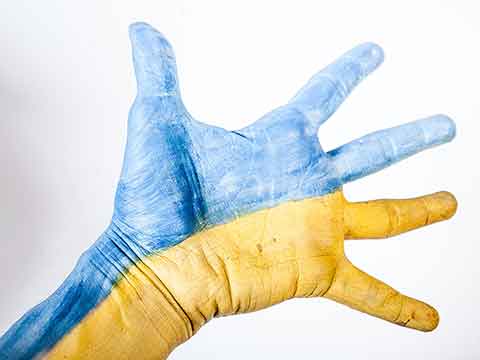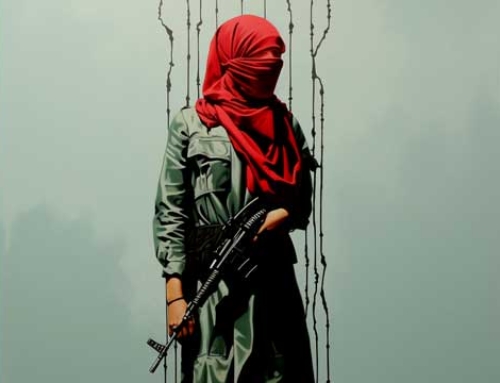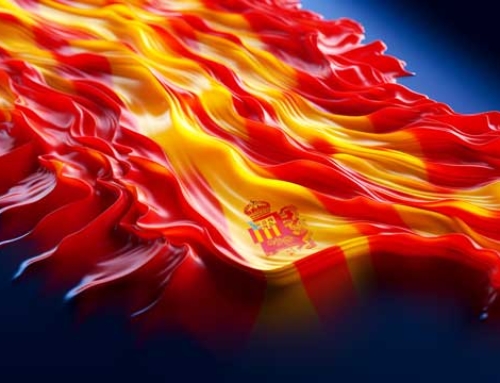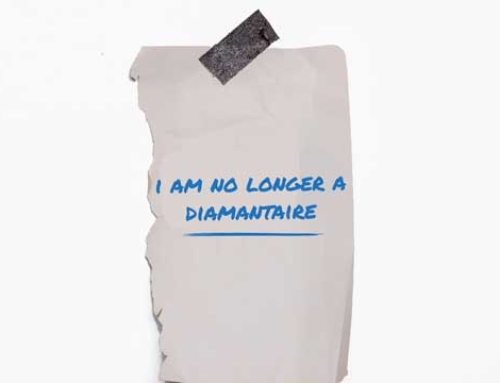Will a European trade ban on Russian diamonds have a restraining effect on Vladimir Putin’s warmongering?
The Belgian political world seems convinced it will. Both Groen (ecological party) and Vooruit (socialist party) are asking for such an embargo, MR (liberal party) and N-VA (nationalist party) will not oppose it, they indicated earlier this week. Once upon a time politicians were eager to bring Russian diamonds to Antwerp, but now the Antwerp diamond dealers find themselves in a stranglehold.
March 2007. During a state visit to Russia, Prime Minister Guy Verhofstadt calls for closer cooperation with the Antwerp diamond sector. At that time most European leaders still see Russia as a valuable trading partner from which there is a lot of money to be made. This is also the view of many diamond traders, who follow in Verhofstadt’s footsteps and travel to Russia in the hope of doing good business there. Those who can lay their hands on Russian diamonds are sure of both the quality and a stable supply.
But in 2008 fate strikes. The global economic crisis paralyzes the diamond trade. Nobody dares to buy anymore and Russia’s only diamond mine, Alrosa, is stuck with its stock and high debts. In 2009, Putin pumps 800 million euros of Russian tax money into the sector. Under his impetus, the Russians switch to a different strategy and professionalize their sales channels. For example, they poached British diamond trading specialist Michael Brooker from competitor De Beers. He is to reorganize Alrosa’s customer portfolio.
In Antwerp, Brooker goes looking for big players who want to take a leap of faith. He seduces them into signing a long-term contract with the Russian diamond mine. In this way Alrosa can sell its diamonds even in difficult times and the risk is transferred to the buyers. About twenty diamond merchants jumped at the chance. They promised to buy agreed quantities on a regular basis for a fixed period of three years each.
Branch office in Dubai
The crisis years are difficult, confirms a source close to Alrosa. Antwerp companies are obliged to buy large volumes of diamonds, but barely get rid of them at first. They suffer losses, but everyone expects the economy to recover. And it does, and for those who have taken the plunge, there are rewarding times ahead. For Alrosa too, the strategy proves to be a success. Slowly but surely, the mining company’s share of the global diamond trade grew to as much as 30%.
The circumstances also allow Alrosa to tighten the rules. Companies must be able to present a flawless track record and must meet strict conditions in terms of compliance (cash flows and anti-money laundering regulations) and corporate governance (including ethical codes of conduct and transparency). This fits in perfectly with the sector’s ambition to get rid of the shadowy image surrounding blood- and conflict diamonds, something that is mainly associated with African suppliers. Everyone agrees that Russian diamonds are a good thing for the sector.
Yet there is a catch. According to an insider, the Russians require their customers to open a branch office in Dubai. For most diamond dealers, there is no reason not to.
It turns out to be a clever, strategic trick, with which the Russians anticipate possible trade embargoes and a clouded relationship with the West around 2010. In the event of a Western boycott, Antwerp diamond companies will still be obliged to meet their commitments through their branch office in Dubai.
“Groen doesn’t get it”
Antwerp’s diamond district is small. In the three streets it covers, almost all traders know each other. Together they stand strong in price negotiations with Alrosa. That reminds the Russians of their vulnerability. By attracting new long-term customers in India and Dubai, they in turn improve their negotiating position. If they experience too much trouble in Antwerp, they fall back on their network in the east.
“As a result, an import ban will be a measure for naught,” says Indian-Belgian diamond trader Sashin Choksi. “Russian diamonds cut in India or traded in Dubai may then just continue to enter here. But that doesn’t stop the flow of money and the possible financing of the conflict in Ukraine. On the contrary, the suffering of the war remains, and on top of that Antwerp traders lose their entire business to rogue states that don’t care about human rights. India is also among them.”
With most Russian banks excluded from Swift, the system for international payments, the Indian central bank, for example, is already diligently looking for new ways to restore payment traffic with Russia. “As long as you don’t restrict imports from such countries, crippling the Antwerp diamond sector is completely useless,” Choksi stresses. “Groen politician Wouter De Vriendt is now calling for a Belgian boycott, but that man has never set foot in the diamond district. He thinks he is doing something good with this, but he clearly knows nothing about international trade. Meanwhile, we are portrayed as criminals, but don’t forget that until before the war, everyone was behind ethically mined Russian diamonds!”
Plane full of cash
Choksi himself is not a customer of Alrosa, but he feels the impact of the war. “No less than 30% of all rough diamonds traded in Antwerp are of Russian origin. Of course, this conflict has an impact on the whole sector,” he echoes. “End customers do not want an engagement ring with a diamond that finances wars at all. Moreover, trading it is against my religion.” Most Indian diamond dealers are adherents of Jainism, a religion that forbids violence. “We don’t even eat meat, so why would we want to trade war diamonds? We are asking for a trade ban, but everywhere, not just in Europe.”
The Antwerp-based IGC Group, though an Alrosa customer, wonders what large chains like American Tiffany’s will do. “They rely on a constant supply of Russian quality diamonds,” says ex-CEO Jacques Claes. Will they unscrupulously buy from Dubai or India, or look for other sources? “Every diamond that comes out of the ground somewhere in the world will find its way to the market,” says Claes. “The fact that the Russians can no longer pay through the bank won’t stop them. If necessary, they will send planes full of diamonds to India or Dubai, and fly back to Moscow full of cash.“






